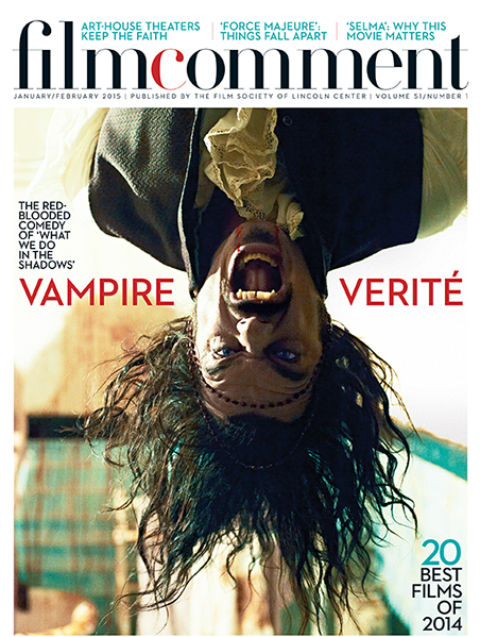
It’s difficult not to get a little irritated by Xavier Dolan. Barely 25, with five films already under his belt and a Cannes Jury Prize last year shared with Godard, the hyperactive, immodest, and prodigiously talented French-Canadian filmmaker can be exasperating. It is even harder, though, not to be dazzled by his precociousness, his ravenous energy, and the emotional intensity of his work.
In the five years since he burst onto the scene at Cannes with the angry, semi-autobiographical I Killed My Mother (09), Dolan has worked ceaselessly, sampling and remixing various styles and genres, throwing himself into film with the creative appetite of a child venturing into a vast imaginary playground. From the light musings on youth and love of Heartbeats (10) and the oddly sober saga of Laurence Anyways (12), to the poignantly gay and creepily Hitchcockian Tom at the Farm (13), a distinctive, striking, and exceptionally assured cinematic voice has emerged. Unsurprisingly, Dolan has also managed in that time to do what many take their entire adult lives on the couch to achieve: come to terms with his mother. And so we come to Mommy.
Mommy is Diane (Anne Dorval), widowed, tattooed, and freshly out of a job when her psychotic teenage son Steve (Antoine-Olivier Pilon) is foisted upon her, having been thrown out of the state care facility to which he had been committed after attempting to set fire to its cafeteria. An angel face with the temper of a grizzly bear, Steve is a living nightmare, a Gordian knot of raging and libidinous impulses barely held in check by his medication. But he is her son, wrathful yet adoring, and Diane is a fighter, determined to save him against all odds. To temper the manic and claustrophobic co-dependence of this explosive oedipal duo, Dolan introduces a strange and attractive neighbor into the mix, the withdrawn and stammering Kyla (Suzanne Clément) who will try to homeschool Steve.

Tragic yet luminous, Mommy is a film of astounding violence and grief punctuated by bursts of unmitigated glee. The pace is relentless, brimming with all manner of heightened emotion, frustration, and never fully acknowledged desire, made all the more wrenching by the stupendous trio of actors. Dolan leaves us little time to catch our breath. The ride is wild, loud, drenched in pop music. Excess fuels the film, without ever derailing it—for Dolan is equally capable of holding back. Steve’s libidinal urges, for instance, though omnipresent throughout—and fusing in a myriad of potentially taboo directions—are never satisfied, nor even explicitly stated. Keeping a lid on them, of course, only serves to intensify the pressure.
Beyond the devastating tale of mother-son love, Mommy is also an invigorating display of cinematic inventiveness, starting with the device of a square 1:1 aspect ratio. Dolan also experimented with aspect ratios in the tenser moments of Tom at the Farm, though the effect then still felt tentative and somewhat gimmicky. It works rather beautifully here, forcing us into the core of this tight, unhealthy huis clos and, like Steve’s mind, offering no escape save in fleeting moments when the frame temporarily expands to a standard aspect ratio. A little too “beautifully,” his detractors will say, rather unjustly, for the contrast between aesthetic formalism and raw content never diminishes the impact.
Mommy is an exhilarating 134 minutes of cinema. Xavier Dolan has that enfant-terrible attitude of a young Lars von Trier or Leos Carax, the flair for melodrama of a Northern Almodóvar, and a fearlessness in plumbing the depths of ordinary people that evokes even Cassavetes. The references and comparisons could go on. But the end result is entirely his own. Warts, irritations, and all, he continues to be one of the most exciting new voices in film today.








